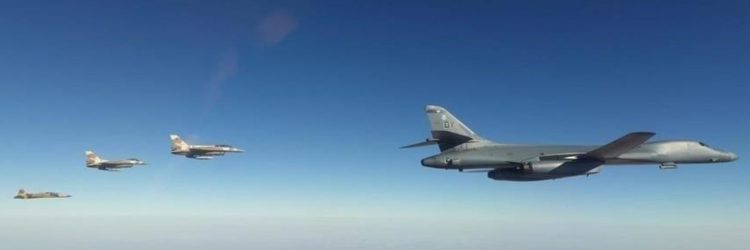AFRICOM Commander Gen. Michael Langley emphasized that al-Shabaab remains a global threat, and this strike highlights the ongoing commitment of the United States and Somali forces to combat terrorism in the region.
The operation underscores America’s resolve to counter evolving terrorist threats and its partnership with Somalia to enhance regional security.
Background on Al-Shabaab
Al-Shabaab, officially known as Harakat al-Shabaab al-Mujahideen, is a transnational Salafi jihadist organization based in Somalia and active across East Africa. The group’s name means “The Youth” in Arabic, and it emerged in the mid-2000s as a significant threat to regional stability. Al-Shabaab originated in 2003 as a youth militia within the Islamic Courts Union (ICU), a federation of local Islamic courts that governed southern Somalia in the early 2000s. It initially served as the ICU’s armed wing but gained prominence during the 2006-2009 Ethiopian invasion of Somalia, where it became a leading force resisting the occupying Ethiopian troops.
Al-Shabaab adheres to a strict interpretation of Salafi jihadism, blending it with Somali nationalism. Its main goal is to establish an Islamic caliphate in the Horn of Africa governed by its version of Sharia law. In 2012, the group formally pledged allegiance to al-Qaeda, aligning itself with the broader global jihadist movement. Over the years, Al-Shabaab’s organizational structure has evolved, allowing it to control large parts of southern Somalia and carry out deadly attacks across East Africa. It engages in guerrilla warfare, terrorist attacks, and the creation of shadow governance in areas under its control.
The group has been designated as a terrorist organization by several nations, including the United States, the United Kingdom, and the United Arab Emirates. The U.S. Africa Command (AFRICOM) describes Al-Shabaab as “the largest, wealthiest, and most lethal Al Qaeda affiliate in the world today,” emphasizing the significant threat it poses to U.S. interests in East Africa and beyond. Despite ongoing efforts by the Somali government and international partners, Al-Shabaab remains a resilient and dangerous force. As of 2022, the group continues to be a formidable challenge, highlighting the difficulty of eradicating its influence in the region.
International Collaboration
The operation to eliminate Mohamed Mire showcased significant international collaboration between the United States and Somalia. The airstrike, conducted on December 24, 2024, approximately 10 kilometers southwest of Quyno Barrow, Somalia, was coordinated with the Somali government, highlighting close cooperation between the two nations. The planning involved intelligence sharing between U.S. and Somali agencies to accurately locate and target Mire. Somalia’s Ministry of Information described the operation as “well-planned” and executed with the help of international partners.
This strike is part of an ongoing partnership between the U.S. and Somalia to combat terrorism, particularly targeting al-Shabaab. AFRICOM Commander Gen. Michael Langley emphasized the importance of working with like-minded nations in the region to counter such threats. Following the operation, both U.S. and Somali officials confirmed Mire’s death and assessed the success of the strike. This collaboration demonstrates the shared commitment of the United States and Somalia to address regional security challenges and counteract the influence of extremist groups like al-Shabaab.
US CONFIRMS killing of senior Al-Shabaab leader Mohamed Mire, alias Abu Abdirahman, on December 24, 2024 airstrike near Quyno Barrow; US Africa Command says no civilians harmed. pic.twitter.com/XNOebXgTpb
— Parrot Times (@ParrotTimes) January 6, 2025
Implications for Regional Security
The death of Mohamed Mire has significant implications for security in East Africa, particularly in Somalia and neighboring countries. As a high-ranking leader in al-Shabaab, Mire’s elimination weakens the group’s leadership and disrupts their command structure, which could destabilize their operations in the short term. His role in strategic decision-making and regional governance was crucial, so his death may reduce al-Shabaab’s capacity to plan and execute attacks on civilians and government targets. However, Al-Shabaab remains a persistent threat, controlling large areas of southern and central Somalia and continuing to carry out attacks in neighboring countries.
The successful operation highlights the effectiveness of international collaboration between the United States and Somalia in counterterrorism efforts, which may lead to more joint operations in the future. However, there is also the risk of retaliatory attacks by Al-Shabaab in response to the loss of a high-ranking leader, potentially increasing short-term security threats. While Mire’s death is a major blow, the group’s decentralized structure means that the long-term impact on regional security remains uncertain.
This operation underscores the ongoing commitment of both the U.S. and Somalia to counterterrorism in the region, likely resulting in increased resources and focus on these efforts. Mire’s death could also create a power vacuum within Al-Shabaab, potentially sparking internal conflicts that might disrupt the group’s operations and influence. While Mire’s elimination is a positive development for regional security, it is clear that continued international cooperation and sustained efforts will be necessary to address the ongoing threat posed by Al-Shabaab and other extremist groups in East Africa.
Summing Up
The targeted killing of Mohamed Mire by U.S. forces highlights the effectiveness of precision airstrikes in neutralizing high-value targets within terrorist organizations. This operation disrupted Al-Shabaab’s command structure and should serve as a deterrent to other terrorist groups. However, the path to lasting peace in Somalia requires a comprehensive approach, combining military action with efforts to address the underlying socio-economic issues that fuel extremism.
For more in-depth analysis of counterterrorism operations and global security, stay tuned to SOFREP.










COMMENTS